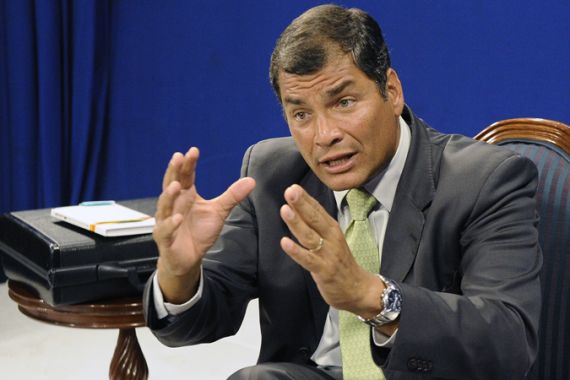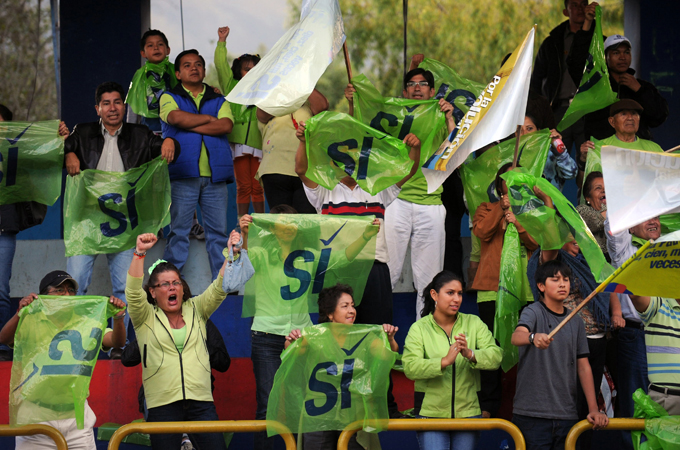Ecuador’s president declares referendum win
President says he has gained approval from majority of voters on a host of judicial and media reforms.

 |
| Exit polls showed voters approved all questions by greater than 60 per cent [AFP] |
Rafael Correa, Ecuador’s president, has declared victory in a referendum on judicial and media measures that opponents say are a power grab undermining the South American nation’s democracy.
Two of the most controversial changes would bar owners of news media from having other commercial interests and create a government media oversight panel.
“The Ecuadorean people have triumphed,” Correa said on Saturday, claiming an average 62 per cent “Yes” vote on the 10 proposals.
He called the approval of the media ownership question “a historic deed”.
“We are going to diffuse the power in this country,” he said.
Critics say the two changes would make it easier for Correa, who is often at loggerheads with the largely opposition news media and business community, to subtly impose censorship.
A private tracking poll by Cedatos-Gallop showed an average 57 per cent of voters backing all the questions in what was essentially a vote of confidence on Correa, 48, who has governed since 2007.
An exit poll by Santiago Perez Investigacion y Estudios showed more than 60 per cent said “Yes” votes to all questions.
But with 30 per cent of the vote counted by Sunday morning, the margins were far smaller, with a few questions barely receiving support from half the voters.
‘Citizen’s revolution’
Chile’s Enrique Correa of Chile, the chief of an Organisation of American States observer team, said the voting appeared to go smoothly and there was no evidence of organised fraud.
But a small group of opposition activists shouted accusations of vote-fixing on Sunday outside state electoral council headquarters.
The plebiscite is seen as an important gauge of Correa’s popularity.
Speaking during a television interview on Saturday, long before significant results were available, Correa said that it was the eighth straight electoral victory “of this dream that is called citizen’s revolution”.
The first for the US-educated economist was his 2006 election, and he was easily re-elected in 2009 after a rewrite of the constitution, following a playbook written by his ally, Hugo Chavez, the president of Venezuela.
Some ballot questions were straightforward, such as whether to ban bullfighting and gambling.
One of the questions called for dissolving Ecuador’s judicial oversight council and replacing it with a temporary body given the task of reworking the system.
Another would allow authorities to detain people for longer without filing charges.
Five of the questions mandate constitutional changes. The other five require congressional action.